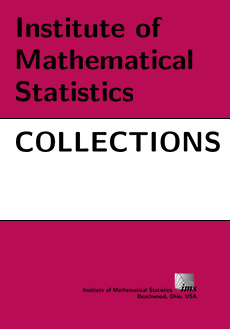Abstract
We propose a hierarchical Bayesian model to estimate the proportional contribution of source populations to a newly founded colony. Samples are derived from the first generation offspring in the colony, but mating may occur preferentially among migrants from the same source population. Genotypes of the newly founded colony and source populations are used to estimate the mixture proportions, and the mixture proportions are related to environmental and demographic factors that might affect the colonizing process. We estimate an assortative mating coefficient, mixture proportions, and regression relationships between environmental factors and the mixture proportions in a single hierarchical model. The first-stage likelihood for genotypes in the newly founded colony is a mixture multinomial distribution reflecting the colonizing process. The environmental and demographic data are incorporated into the model through a hierarchical prior structure. A simulation study is conducted to investigate the performance of the model by using different levels of population divergence and number of genetic markers included in the analysis. We use Markov chain Monte Carlo (MCMC) simulation to conduct inference for the posterior distributions of model parameters. We apply the model to a data set derived from grey seals in the Orkney Islands, Scotland. We compare our model with a similar model previously used to analyze these data. The results from both the simulation and application to real data indicate that our model provides better estimates for the covariate effects.
Information
Digital Object Identifier: 10.1214/074921708000000174


